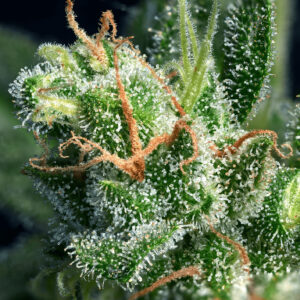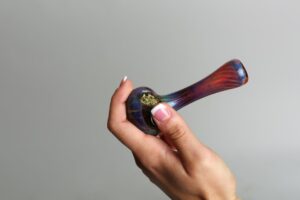As with all organic matter that they consume, people can be worried about the shelf life of cannabis products, including tinctures. Do they lose potency? Do they expire? Can they turn and make you ill? The good news is, marijuana tinctures aren’t like eating a bad anchovy — they won’t make you sick even if they have been sitting around for a long time. And while they may lose potency eventually, they are among the hardiest and longest-lived forms of weed — good for many years to come. Read on to learn more about tincture shelf life.
Article highlights:
- Tinctures can help with a variety of health conditions, including anxiety and chronic pain.
- As tinctures are usually administered by dropper, dosing accuracy is easy.
- This cannabis product is often taken sublingually, but tinctures can also be added to food and drinks.
- Quality and packaging, as well as how you store them at home, can impact tincture shelf life.
What Are Tinctures?
Tinctures are a form of cannabis usually created with a high-proof alcohol. The alcohol breaks down the plant matter in cannabis into a liquid solution that can be taken orally. (In some cases, tinctures can also be made with glycerin or oil.) The cannabinoids, terpenes and other compounds melt into the base liquid, so the tincture is ready to dose and consume. Tinctures can help with a variety of medical conditions, including anxiety.
How Can I Use Tinctures?
You can consume tinctures orally. People use a dropper to take a specific dosage sublingually, but they can also be added to beverages or food. Someone might go the latter route if they don’t like the taste of pure tincture drops (the food or drink disguises the flavor!).
If you take a tincture sublingually, it will be absorbed quickly through the mucus membranes directly into the bloodstream, and its effects are typically felt in 10 minutes or so. With a tincture-laced edible, this process takes longer because the ingredients (and thus the cannabinoids) must be processed by the liver before entering the bloodstream. In this case, the process can take 30 minutes to two hours for the THC or CBD to kick in.
When administered with a dropper, tinctures are easy to dose with great accuracy. They are highly portable and odor-free, so they can be used in public places without drawing attention. Tinctures with high levels of THC appeal to people who want help with musculoskeletal ailments. Cannabis Tinctures high in CBC are often effective at dealing with chronic pain and muscle spasms.
Tinctures can also be used to help with health ailments that include (but aren’t limited to) the following:
- Mental health disorders: Research shows that CBD oil shows promise in treating the symptoms of anxiety (including social anxiety), insomnia in children, PTSD and depression.
- Cancer-related symptoms: There’s evidence that tinctures and other cannabis products can help with cancer-related treatment side effects, nausea, vomiting and pain.
- Neurological disorders: Because of CBD’s capacity to impact the endocannabinoid system (ECS) and other brain-signaling systems, it has the potential to provide benefits for neurological disorders like epilepsy and MS.
- High blood pressure: Its ability to help lower blood pressure may help to reduce the chance of stroke, heart attack and metabolic syndrome.
Factors Affecting Tincture Shelf Life
Whether you buy them from a dispensary or make your own, tinctures have the longest shelf life of any cannabis product — stored properly, alcohol-based tinctures can last up to a decade. The less common oil tinctures are good for at least a couple of years.
Some of the factors that can affect how long tinctures last include the following:
- Packaging: Tinctures last longer in dark-colored, airtight bottles, protecting the product from sunlight and air.
- Quality: Using higher-quality marijuana plants for tinctures will provide a better product that will have an increased shelf life.
- Storage: Since heat and light may make tinctures degrade faster, it is important to store them away properly. (Keep scrolling for the goods on storage!)
Best Ways to Store Tinctures
Improper storage can reduce a tincture’s potency, making its cannabinoids and terpenes deteriorate. While this is not a consideration with tinctures, dry marijuana flower exposed to too much moisture can also go moldy, affecting its flavor and strength, and possibly posing health risks.
For the best quality of tincture, it should be stored as follows:
- In a dark, airtight package
- Away from direct sunlight and too much heat or freezing cold temperatures
- In a secure location (so they don’t pose a health hazard to pets or children)
Of course, if tinctures are used in a drink or edible, their best-before date is affected by the other ingredients in the product. A brownie that you wouldn’t eat after a week won’t be given longer life by an infusion of tincture.
Stored and used with care, however, tinctures should retain their value for a long time to come.





